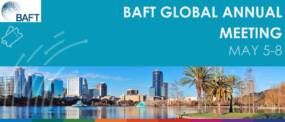The International Chamber of Commerce (ICC), a global business organisation, has a central mission to promote international trade and investment as vehicles for inclusive growth and prosperity. ICC helps businesses adapt to the challenges of trading in today’s fast-paced global economy.
Global trade and the facilitation of goods and services across supply chains is a driving force of economic development, allowing countries to integrate into the global economy, gain access to differentiated goods and services, and achieve higher standards of living.
And what is clear is that global trade must transform itself into an engine for sustainable development, contributing to increased action on climate and biodiversity at the international, sectoral, and enterprise levels.

Sustainability within global supply chains
Boston Consulting Group estimates that more than $22 trillion worth of goods flow across the world every year, a figure expected to reach almost $35 trillion by the end of the decade.
A recent ICC report highlights that there remains considerable possibilities for trade to play a more significant role in achieving the Paris Agreement targets and become a key driver to help reach the UN Sustainable Development Goals.
As trade consists of intrinsically linked supply chains, ICC recognises that addressing sustainability is not possible without considering solutions across entire corporate supply chains and the broader geography of global trade.
Currently, global supply chains account for up to 80% of the economy’s GHG emissions and also have a significant impact on nature and biodiversity.
As the global community shifts towards building a sustainable, more inclusive economy, we are just beginning to understand what this means for trade globally and the linked financing.
The WTO recently launched a flagship report highlighting the potential role that trade can play in accelerating the decarbonisation of the global economy. They concluded that there there is lots of work to be done to align policy-making with global sustainability goals.
As banks and corporates look to extend their sustainability efforts beyond scope 1 and 2 emissions, there is a clear opportunity to take greater strides forward on sustainable trade and supply chain finance.
We believe that the key to addressing this challenge lies in enabling the $10 trillion market in annual trade to better recognise, facilitate, and even reward sustainable practices in global value chains.

A first step towards sustainable trade
In order to encourage more sustainable practices across global trade, it is essential to first define sustainable trade and set up meaningful, rigorous, yet implementable standards that interpret the complexity of trade and assess the sustainability of individual trade transactions – something that is currently missing.
While a number of related standards for sustainable goods, services, and financial products exist, none have yet been adapted to define sustainable trade and capture its complexity in a clear, robust way.
ICC has taken on the task to try and fill this gap and recently launched a new framework for sustainable finance after consultations with more than 500 companies from various sectors and geographies.
The ICC framework will help banks and corporates determine whether the different elements of a transaction are sustainable, drawing on readily available data and – to ensure the integrity of assessments – based on globally recognised sustainability standards.
The framework sets out an agreed industry definition of sustainable trade – taking into account both environmental and socio-economic factors. It also embeds an approach that covers the entire lifecycle of an international trade transaction across five different dimensions – from the buyer and supplier to the nature and purpose of the goods or services sold.
Banks and corporates will be able to use our framework to chart their sustainability across component parts of trade and throughout their supply chain for the first time.
We believe that this framework represents a major leap forward to surmounting obstacles for large corporates and SMEs alike, embedding sustainability at the heart of global commerce in a practical and robust way.
- Since the framework’s launch at COP27, ICC has partnered with Boston Consulting Group, and more than twenty leading banks, global technology companies and major players in the textile sector for a pilot with real-world clients and transactions.
- These partners include Coöperatieve Rabobank U.A., Esquel, HSBC, Landesbank Baden-Württemberg (LBBW), Lloyds Banking, Puma, Santander, Surecomp, and UniCredit, among others.
This pilot phase will allow us to test the framework in a real-world setting and build a more comprehensive view on the sustainability of global value chains over time.
This is the start of an important journey that we hope will enable robust sustainability criteria to be embedded in trade financing across all sectors.
ICC fully intends to continually build thought leadership on the topic to make a real impact. For example, ICC will be focusing on launching ‘Wave 2’ later this year, broadening the scope beyond textiles and applying a more ‘graded’ scoring methodology to the framework.
We have a unique opportunity and responsibility to set trade on a path towards maximising its contribution to global sustainability goals and are committed to making this a success.
 Australia
Australia Hong Kong
Hong Kong Japan
Japan Singapore
Singapore United Arab Emirates
United Arab Emirates United States
United States France
France Germany
Germany Ireland
Ireland Netherlands
Netherlands United Kingdom
United Kingdom













Comments are closed.